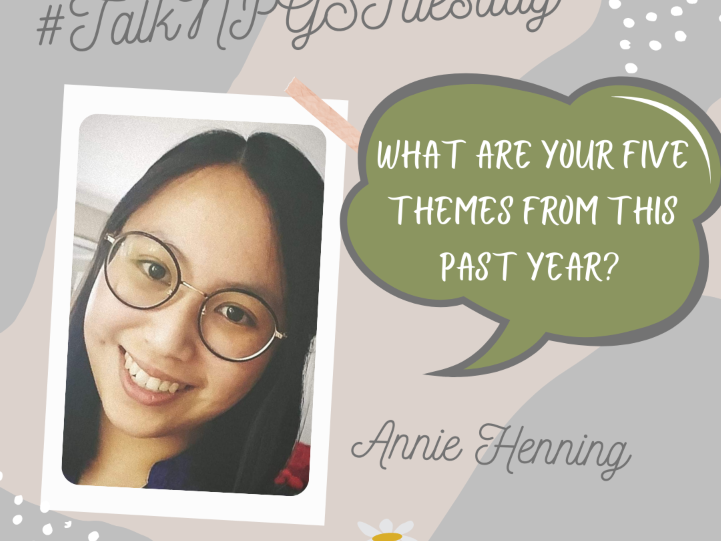
5 Themes from the 2020-2021 Academic Year
New Professionals and Graduate Students New Professional
May 18, 2021
The first pancake is the one which sets the tone of the pancake making process; based on the first pancake, you adjust the heat of the stove and the viscosity of the batter. Like the first pancake, my first year as a student affairs professional was my introduction to the career and possibilities that lays before me. More times and than not, I felt like my errors were signs of failure and lack of fit for the profession. As I reflect on my first full academic year as a professional, five themes which affected my first full academic year as a professional.
-
Grace, Trust and Confidence
If you have not done so, I encourage you to extend grace/forgiveness to yourself and to have confidence in what you do/who you are. Like myself, I am sure that is far easier said than done, but hear me out. Would you scold a first year student for asking for directions to a specific building? No. Would you rebuke a new colleague for clarification about one of the many acronyms used in higher education? Probably not. So, why should you not be kind to yourself as you transition to your new role?
Remember, everyone, from our mentors to supervisors to legends in the field, has experienced a first day, first month, and first year. Your life experiences and personality are valued. You bring something unique to each experience, conversation, and interaction. Who knows, maybe you are the person that your student/colleague needs in order to feel seen and validated.
-
Explore your Interests and Passions
Wellness best practices note a balance of stressors and self-care. Whether it is professional development opportunities, reading a new book, or trying a new hobby, one thing which has been influential during my first year as a professional has been to prioritize exploring my interests and passions. For me, this exploration took the form of connecting to new areas of higher education and building relationships with those outside of the campus community. This experience of engaging in an identity outside of student affairs became a grounding experience which (unexpectedly) inspired new career goals and interests.
By grounding myself in other areas of higher education and new relationships, I unintentionally filled my cup in a revitalizing way. I gained deeper insight into my needs and wants; I found new ways to connect with others and created/found spaces where I could display/investigate other skills and personality traits.
-
Be a student for and of life.
I love to engage in the knowledge development process; so when we had to adapt to virtual life, I started to become apprehensively eager. For me, being a student has been more than an identity; it has become a framework to how I approach life. As I have become more of a student for and of life, I have been able to find familiar places novel again; I’ve found teachers in my students. I have grown in a way that words cannot explain. For me, being a student for and of life is more than taking professional development courses/opportunities or becoming proficient in a top 10 skill/platform. It is seeking to find the growth and narrative in all things while maintaining a childlike curious heart and mind. By holding this framework, I have begun to write a narrative of transparency and authenticity with my relationships.
-
Be an invitation and not a checklist.
A repeated theme has been the imagery of an invitation and a checklist. If this pandemic and virtual life has taught me anything, it is that we need more invitations in the world and not checklists. Our communities and identities are so connected; when we do our work, our whole selves (i.e., experiences, values, and perceptions) come as well. As student affairs professionals we should be invitations to the higher education experience rather than unintentionally affirming the checklist of societal expectations (e.g., resume builders, a specific leadership personality, etc.). We should be modeling the values and actions which we hold in esteem. In some ways, we should be sharing our authentic selves with our students/colleagues so that the legitimate power that we hold does not become a checklist of people we have know/interact with and unintentionally create barriers to connection.
-
Find Your Executive Board/Team
No matter what is going on in your life, you always need a support/accountability team. I call them my personal executive board (E-Board). They are colleagues and friends (and not my significant other/family); they are the people who can give me perspective and guidance in various aspects of my life which are significant to me. With all the changes and anxieties of this year, my support network has been invaluable. I hope you have your own E-Board which can support and guide you as you traverse the uncertainties of your mind and heart.
As we close on this academic year, I hope you take the time to celebrate and validate all that you have done this year. You have adapted and grown to make the best pancake mix. What are your five themes from this past year?
Author: Annie Henning is the Program Coordinator for the University Honors Program at Saint Louis University. She enjoys all things food, geeking out over fandoms, and connecting with her loved ones. Annie can be found on LinkedIn or contacted at henning1315@gmail.com